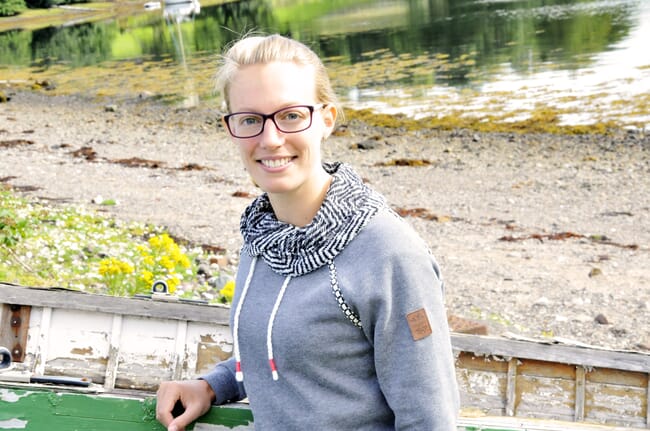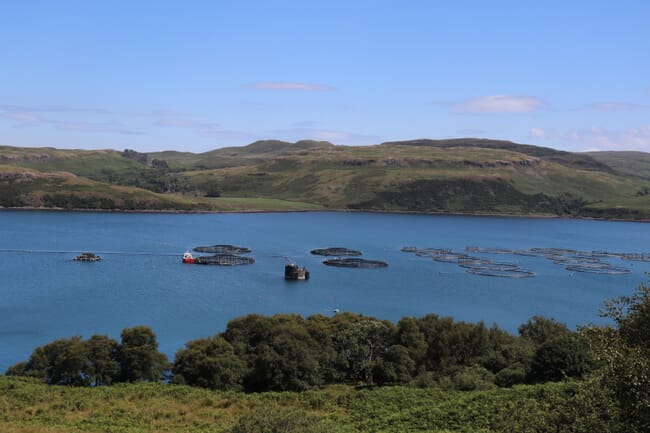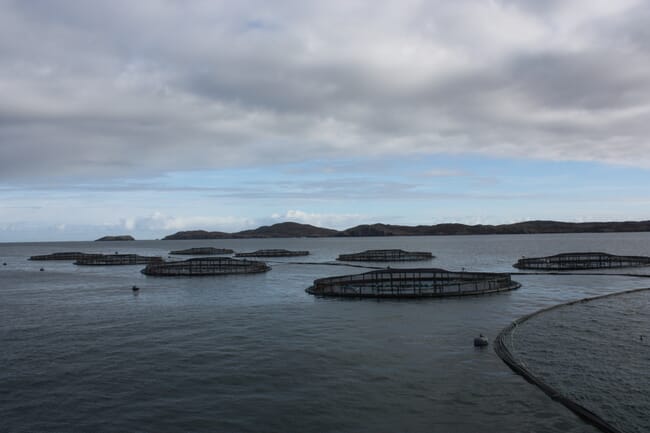Dr Billing, who is based at the Scottish Association for Marine Science (SAMS), recently published her results in the journal Ocean and Coastal Management under the title ‘Using public comments to gauge social licence to operate for finfish aquaculture: Lessons from Scotland’.

Speaking to The Fish Site, she outlines some key lessons for the sector that can be drawn from her research – lessons that are particularly pertinent following the REC Committee’s recent conclusions.
Can you explain the term ‘social licence to operate’ in the context of aquaculture?
Social licence to operate is a term used to describe a positive relationship between an industry and its local community including other businesses. The relationship is influenced by interventions by regulators, NGOs, media, and other maritime industries. The existence of social licence is shown by community support for ongoing activities; a company’s positive reputation locally and with consumers; few or no objections to new sites or in the pre-planning consultation; quality communication between aquaculture operators, local communities, and interested stakeholders; and a decrease in the number of issues which require settlement through formal processes such as planning reviews, judicial hearings, inquiries, or court cases.
Why did you choose to research this area?
My research was part of the EU-funded AquaSpace project, which aimed to improve understanding of the constraints to the growth of the aquaculture industry in Europe – no-one knows these better than aquaculture operators, so we asked them. After a workshop with 25 industry stakeholders – both finfish and shellfish – we homed in on several topics that they raised which we felt we could work on. One of these was local social acceptability – ie social licence to operate.

What were the most striking trends revealed by your research?
The lack of non-biased and transparent information available to local communities, interested parties and the general public on finfish aquaculture was the most prominent finding. For example, most people know or assume that growing salmon influences a farm’s environment. However, information on the extent and significance of this environmental impact is, typically, either behind a paywall or written for scientific audiences. This means that local communities and the general public rely on individuals, eNGO campaigns and their websites, aquaculture operator websites, and planning proposals to determine how they perceive finfish aquaculture. I’m not sure that this particular mix of information is adequate for society to take decisions about the future of our seas and in some cases our rural communities.
The research showed that all finfish farm companies are gauged by the company or site that is reported as having the lowest operating standards at a given time. Sometimes it is reports of one-off events that most strongly influence public perceptions.
The analysis also showed that regulatory agencies have a role to play in social licence. Regulators need to enforce accountability for errors incurred by the aquaculture industry, and the public need to trust them to do so.
Aquaculture does not function in isolation. More research needs to be done on the cumulative societal interactions of tourism, renewable energy and aquaculture – especially given that these industries are all aiming for growth, are supported by the Scottish Government, and potentially operate within the same areas.
What did the REC Committee’s report reveal about the social licence of Scotland’s salmon sector?
The committee recognised in its report that salmon farming operations pose “social challenges”, especially for other users of the same space, such as inshore fishers and marine tourism businesses. In my view, the quotes and evidence, collected from many sources by the committee, show that Scotland’s salmon farming sector might be losing its social licence to operate. The supermarket Waitrose explicitly noted the need for social licence when they stated: “If the 2030 vision [a plan to double the value of farmed seafood in Scotland by 2030] is to be realised, even partially, then the industry needs to accept that it must work towards a social license to expand.”
The work that Waitrose mentioned could include improving transparency and communication around fish health, environmental impacts, and measures taken to improve them. The SSPO Community Engagement Charter shows how to improve communication with local communities and other marine users. However, it might also be helpful if the industry were to evidence their changes in practice through independent peer-review process (ie open access papers published in journals) or independent audit by qualified consultants, so that those looking for information on the impacts of the industry, such as the Scottish Government, regulatory agencies, and eNGOs, have more information on which to base their decisions.

So, would you say it’s currently the biggest barrier to the growth of the sector in Scotland?
It’s certainly one of them. Making companies more aware of the need for social licence will hopefully mean that we can start to see improvements in the relationship between the salmon farming sector in Scotland and local communities and interested stakeholders.
How does your analysis compare with the results compiled by researchers in other countries engaged in the AquaSpace project – many of whom were looking at different species/production methods?
In my opinion, this is one of the most interesting aspects of the AquaSpace project. When we asked industry stakeholders in the 15 case studies to advise us of the major barriers to aquaculture growth in their localities, we expected to hear of spatial, fish health, environmental and regulatory issues. They were all present, but high on the list were also issues related to social licence. These included; community opposition, user conflicts with tourism and fisheries, and cultural hurdles related to the quality of farmed/grown fish as opposed to wild-caught fish. Opposition and conflict were present across the spectrum of different species and production methods.
This information must be very valuable for the salmon industry – have they been keen to engage with your research?
I had the opportunity to present these results to some of the industry at Aquaculture UK in May, in the session sponsored by ArchUK and the Scottish Aquaculture Innovation Centre (SAIC). The AquaSpace project has now ended, but I’m always happy to talk about this work, send copies of my paper, or a summary, to anyone who might be interested. More information on all of the AquaSpace case studies can be found on the website, as can teaching material at MSc level relevant to social licence.
Do you have plans to follow up your AquaSpace project research?
At the moment, I’m working on developing a social licence to operate handbook for seaweed cultivation, through the EU's GenialG project, with the aim of giving the industry and communities a head-start in understanding its potential social interactions, before it becomes fully commercial in Scotland. I’m also starting work in the EU BlueGrowthFarm project, surveying social attitudes to multipurpose offshore platforms that combine renewable energy generation with the farming of finfish.
We have recently recruited a PhD researcher to look in depth at social licence to operate for finfish aquaculture in Scotland. She will be looking to talk to companies, NGOs and community groups who want to explore or develop social licence. If you would like to participate in that project, do get in contact!




